Search
Democracy Links
Member's Off-site Blogs
Blogs
congratulation to sheerpost……..

ScheerPost Is Finalist for 8 SoCal Journalism Awards, Including Best News Website
The site is honored to announce our editor in chief, columnist, cartoonist and entire editorial team are finalists for several Southern California Journalism Awards.
- By Gus Leonisky at 30 May 2022 - 6:09pm
- Gus Leonisky's blog
- 1 comment
- Read more
delusions…..
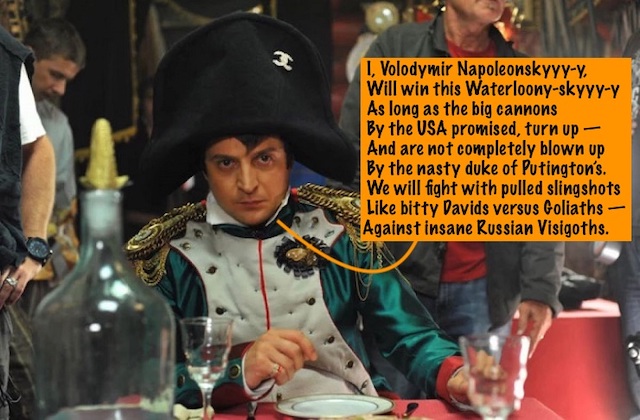
I, Volodymir Napoleonskyyy-y,
Will win this Waterloony-skyyy-y
As long as the big cannons
By the USA promised, turn up —
And are not completely blown up
By the nasty Duke of Putington’s.
We will fight with pulled slingshots
Like bitty Davids versus Goliaths
Against insane Russian Visigoths.
I, great deluded Napoleonskyyy-y,
Will win this Waterloony-skyyy-y
By many momentous occasions,
As the Germans on my side are,
Seeking fervent cold revenge —
For Russky-ya destroyed their Hitler,
Their nice conqueror benevolent —
My hero and sanity consultant,
- By Gus Leonisky at 30 May 2022 - 7:05am
- Gus Leonisky's blog
- 5 comments
- Read more
Hillbilly Justice
- By Richard Tonkin at 30 May 2022 - 12:06am
- Richard Tonkin's blog
- Login or register to post comments
- Read more
the governor was misled…….

WASHINGTON (Sputnik) - Texas Governor Greg Abbott said he was "livid" about the inaccurate information he received about law enforcement's response to the shooting at the elementary school in Uvalde that left 19 children and two teachers dead.
"Yes, I was misled," Abbott said during a press conference on Friday. "I am livid about what happened. When I came out here on this stage and told the public what happened, it was a recitation of what people in that room told me, whether it be law enforcement officials or non law enforcement officials, whatever the case may be, and as everybody has learned, that the information that I was given turned out in part to be inaccurate, and I'm absolutely livid about that."
- By Gus Leonisky at 28 May 2022 - 3:26pm
- Gus Leonisky's blog
- 2 comments
- Read more
if you mess up, 'fess up……..
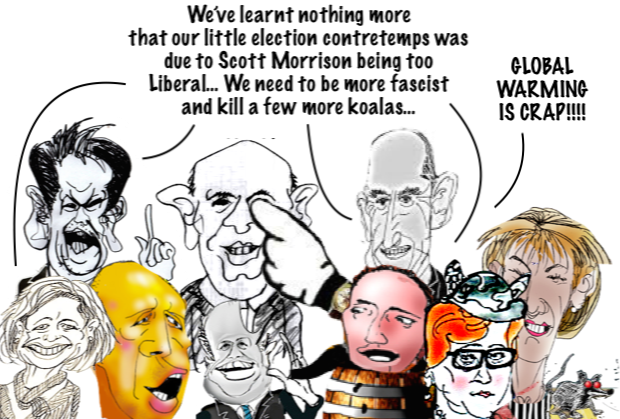 learning nothing
learning nothing
The alarm bells started ringing as soon as the adviser saw the sign.
Inside a factory in Queensland’s far north hung a simple white sign with red lettering.
Its simplicity is what made it so deadly.
Mere minutes away was the Prime Minister, a man in a six-week sprint to keep his job.
READ MORE:
https://www.abc.net.au/news/2022-05-28/election-2022-morrison-lose-liberals-have-a-choice/101102836
FREE JULIAN ASSANGE NOW !!!!!!!!!!!!!!!!!!!!!!!
- By Gus Leonisky at 28 May 2022 - 12:17pm
- Gus Leonisky's blog
- 2 comments
liz is going where no man dared…….
She was once considered almost untouchable, and her long-rumoured relationship with Vladimir Putin never confirmed.
But after the UK imposed sanctions on former Olympic gymnast Alina Kabaeva earlier this month, the strict secrecy surrounding the Russian President's private life has begun to unravel.
In the latest round of sanctions from Western nations, the UK has targeted his ex-wife Lyudmila Ocheretnaya, cousins Igor, Mikhail and Roman Putin, as well as Ms Kabaeva.
UK Foreign Minister Liz Truss said those sanctioned had supported the Russian President and his war in Ukraine in exchange for wealth, high-profile jobs and influence over Russian affairs.
- By Gus Leonisky at 28 May 2022 - 10:02am
- Gus Leonisky's blog
- 1 comment
- Read more
shooting the one china US policy…...

In Tokyo on Monday [May 23], Joe Biden effectively declared war on China, saying he would attack China to steal her territory.
China responded in an adult manner to the senile coot Biden who is in his second childhood.
RT:
Beijing warned on Monday it would take all necessary measures to defend its territorial integrity, and urged Washington not to “underestimate” the resolve of the Chinese people.
- By Gus Leonisky at 28 May 2022 - 8:03am
- Gus Leonisky's blog
- 2 comments
- Read more
the madness of america and its crazy rulers alla caligula…...

Washington admitted to running 336 biological laboratories in 30 countries around the world, including 26 in Ukraine. However, documents seized by the Russian military suggest that the United States actually signed contracts with 49 countries, far more than it has acknowledged.
According to Washington, these contracts do not violate the 1975 Biological Weapons Convention, despite the fact that they were drawn up by a branch of the Pentagon, the Federal Defense Threat Reduction Agency (DTRA). .
The Russian military claims that the DTRA conducted biological experiments on mentally ill Ukrainians at Psychiatric Hospital No. 1 (Streletchye village, Kharkov region) and used a tuberculosis agent to infect the population based in the Slavianoserbsk district ( Lugansk People’s Republic).
- By Gus Leonisky at 28 May 2022 - 6:55am
- Gus Leonisky's blog
- 4 comments
- Read more
of monkeys and war merchants with medals…...
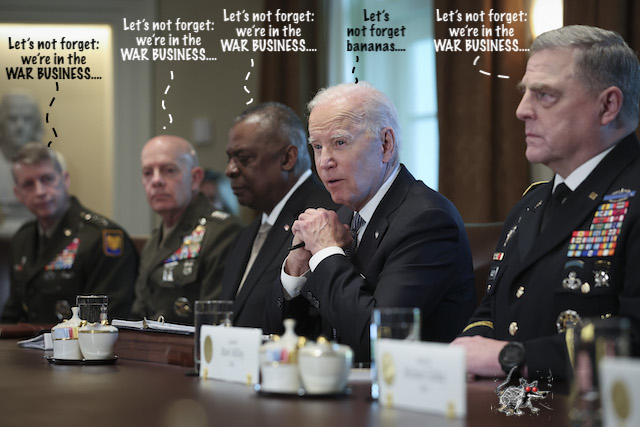
The confrontation between Western nations and Russia amounts to “total war,” Russian Foreign Minister Sergey Lavrov said on Friday during a meeting with the heads of Russian regions.
Russian society and major political forces support the government’s decision to face this challenge, he added.
Western nations “are doubling, tripling, and quadrupling their efforts to deter our nation. They use a wide array of tools, from unilateral economic sanctions to totally deceitful propaganda in the global media,” Lavrov said, noting that “low-level Russophobia, which to our deepest regret is promoted by a number of governments, has risen to unprecedented levels.”
“The West has declared total war against us, against the entire Russian world. Nobody even hides this fact now,” Lavrov stated.
- By Gus Leonisky at 28 May 2022 - 6:16am
- Gus Leonisky's blog
- 2 comments
- Read more
mental friends like these…...
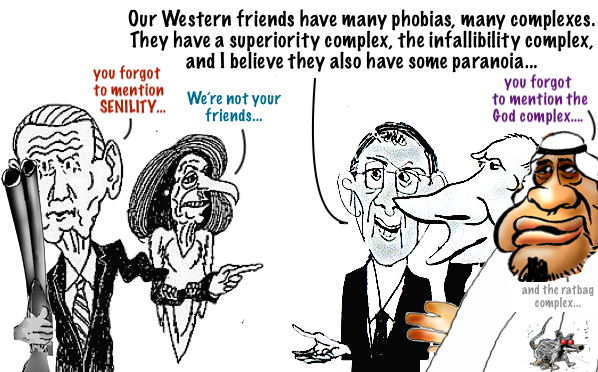
Western leaders believe themselves to be exceptional and are driven by delusions of grandeur and irrational fears, Russian Foreign Minister Sergey Lavrov said on Wednesday in an interview with RT Arabic.
“We know that our Western friends have many phobias, many complexes. They have a superiority complex, the infallibility complex, and I believe they also have some paranoia,” Lavrov said.
“Any process that does not include the West, which the West does not control, they perceive as opposition, a challenge to their dominance,” he explained, referring to various regional economic integration groups and organizations that Russia participates in. “It’s high time for them to kick this habit.”
- By Gus Leonisky at 28 May 2022 - 6:09am
- Gus Leonisky's blog
- 2 comments
- Read more
a sacrifice for a bad cause?….
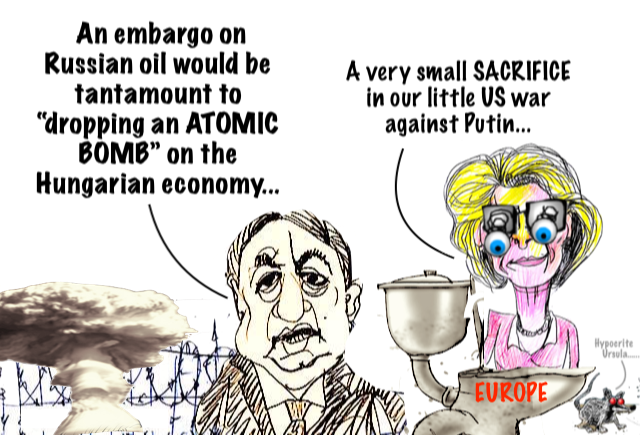
Budapest has spent weeks shooting down proposals by Brussels to ban Russian oil and gas in the European Union, with Prime Minister Viktor Orban warning that an embargo on Russian oil would be tantamount to “dropping an atomic bomb” on the Hungarian economy. Hungary purchases about 65 percent of its oil and 85 percent of its gas from Russia.
Kiev should make "something happen" to the Druzhba ("Friendship") pipeline carrying Russian oil through Ukraine to Hungary to teach Budapest a lesson, Lana Zerkal, an adviser to Ukrainian Energy Minister Herman Haluschenko, has suggested.
- By Gus Leonisky at 27 May 2022 - 11:21am
- Gus Leonisky's blog
- 3 comments
- Read more
and here's some of the nuz….
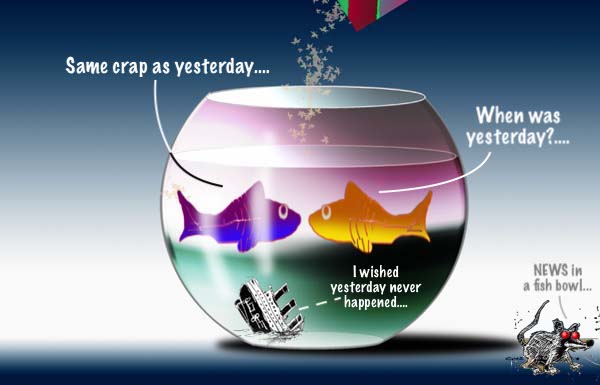
Washington and its allies have turned into a new “collective ministry of truth,” rigorously preserving their narrative on the ongoing conflict in Ukraine, Deputy Permanent Representative of Russia to the UN Dmitry Polyansky told RT on Thursday. The West has launched a massive smear campaign against Russia in the media and on the internet, the diplomat believes.
Western governments seek to spread views that are “beneficial to them but do not always correspond to the reality,” Polyansky said, adding that they ultimately seek to put their own population into a “bubble of lies” that makes it hard for an ordinary person to distinguish between factual information and a distorted picture of what is happening on the ground in Ukraine.
- By Gus Leonisky at 27 May 2022 - 10:43am
- Gus Leonisky's blog
- 2 comments
- Read more
vive la france!…..

London: French President Emmanuel Macron agreed to start rebuilding a relationship with Australia based on “trust and respect” in his first phone call with new Prime Minister Anthony Albanese on Thursday evening.
Macron, who wrote privately to congratulate Albanese following his election victory on Saturday evening, reminded his new counterpart of the “deep breach of trust” which had occurred in an ugly chapter in Franco-Australian relations last year following the cancellation of a $90 billion submarine contract.
In a conversation that lasted more than 20 minutes, the pair agreed the two nations needed to repair the bond to jointly overcome global challenges, including the climate “emergency” and strategic challenges in the Indo-Pacific.
- By Gus Leonisky at 27 May 2022 - 9:25am
- Gus Leonisky's blog
- 1 comment
- Read more
predicting the rise of china and of Jeff Bezos "communism"…….
E T Gundlach's (satirical) book "Fact and Fetishes of Advertising" (1931) was poopooed by the advertising community, despite Gundlach having invented many of the TRICKS of advertising. The point of advertising is to sell more products, not for its boffins to be creative Picassos or being writers of literature. SIMPLE points have to be made — and SIMPLICITY CAN BE FAR MORE DIFFICULT than literature...
In some ways, Gundlach was a visionary and a master of understanding ways to manipulate individual's mind. The paragraphs above give an inkling about his insight, not only of advertising but of the greater TRADE. Trade and the price of fish do more to international relations than wars and political machinations. Above all, honesty in trade and advertising (and in politics) has been the key to progress...
- By Gus Leonisky at 27 May 2022 - 8:09am
- Gus Leonisky's blog
- 1 comment
- Read more
and the philippines…..

Recent general elections in The Philippines appear to signal the island nation’s continued but gradual move out from under US subordination and its rise with the rest of Asia as China emerges as both a regional and global superpower.
With Ferdinand “Bongbong” Marcos Jr. set to become the next president along with his running mate, Sara Duterte, daughter of the outgoing President Rodrigo Duterte, the Western media appears convinced that it signals the continued building of relations between The Philippines and China and the gradual diminishing of American influence over both The Philippines and the rest of the region.
by Brian Berletic
- By Gus Leonisky at 27 May 2022 - 6:35am
- Gus Leonisky's blog
- Login or register to post comments
- Read more
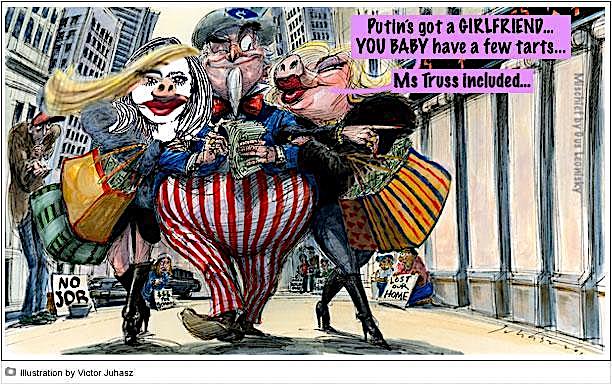
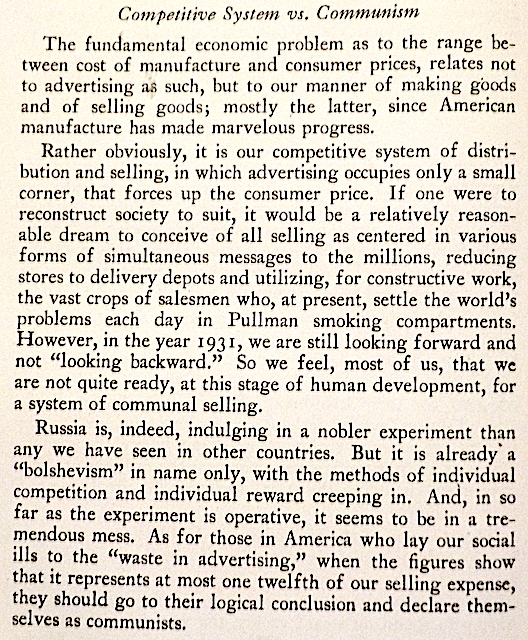
Recent comments
3 min 56 sec ago
7 hours 27 min ago
8 hours 31 min ago
8 hours 35 min ago
19 hours 8 min ago
19 hours 13 min ago
1 day 39 min ago
1 day 3 hours ago
1 day 7 hours ago
1 day 8 hours ago